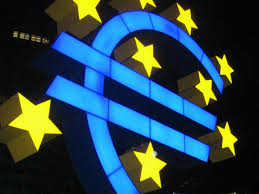Monetary policy-makers are using PEPP reinvestments to buy Italian government bonds while reducing the portfolio of German bonds
Philipp Heimberger is an economist at the Vienna Institute for International Economic Studies (WIIW)
This article originally appeared in German in Handelsblatt

The European Central Bank’s (ECB) Pandemic Emergency Purchase Program (PEPP) has played a crucial role in preventing a crash in bond and equity markets. Markets had been under tremendous stress in March 2020 due to excessive market reactions around the impact of the pandemic, which quickly receded with the introduction of PEPP.
 |
The ECB ended its PEPP net purchases of government bonds in March 2022. But it now holds €1690 billion in government bonds purchased since 2020. The maturities of these bonds vary from a few months to three decades. When a bond matures, the respective government pays it back to the ECB. To avoid shrinking its balance sheet and draining liquidity from financial markets, which would be particularly risky in the current uncertain economic environment, the ECB reinvests the funds.
One PEPP characteristic is that the ECB has the flexibility to decide which bonds to buy. So now, when a German bond is redeemed, the ECB can reinvest the funds in buying existing bonds of other countries.
In fact, in June and July 2022, the ECB did just that: it reinvested €17 billion in Italian, Spanish and Greek government bonds, while its portfolio of German, Dutch and French debt shrank accordingly.
 |
Source: Financial Times.
The PEPP reinvestments are the first line of defense against a new euro crisis on the horizon that could result from a divergence in interest rates between German bonds and those of southern European countries. ECB action in recent weeks curbed the interest rate differential between Germany and Italy in particular.
 |
The ECB’s reinvestments help reduce interest rate differentials (“spreads”); they contribute to balancing structural advantages and disadvantages. It often goes unmentioned in public discourse that Germany, as the economically and politically most powerful country in the eurozone, has an unearned advantantage: Especially in times of crisis, investors want to buy bunds, which are considered the safest haven; thus, Germany benefits from the lowest interest rates.
Southern Europe is exposed to structural disadvantages because of the euro construction. The euro combines supranational monetary policy with national fiscal policy. If the ECB does not credibly backstop bonds issued by individual governments that have been singled out by investors as shaky, they cannot defend themselves against speculative market exaggerations that cause their interest rates to rise much more sharply than those of structurally advantaged Germany.
To remove legal doubts and stabilise the monetary union in the long term, the monetary policy approach to sovereign debt should be discussed democratically and regulated more cleanly in the ECB mandate than has been the case to date.
Support us and become part of a media that takes responsibility for society
BRAVE NEW EUROPE is a not-for-profit educational platform for economics, politics, and climate change that brings authors at the cutting edge of progressive thought together with activists and others with articles like this. If you would like to support our work and want to see more writing free of state or corporate media bias and free of charge. To maintain the impetus and impartiality we need fresh funds every month. Three hundred donors, giving £5 or 5 euros a month would bring us close to £1,500 monthly, which is enough to keep us ticking over.



Be the first to comment